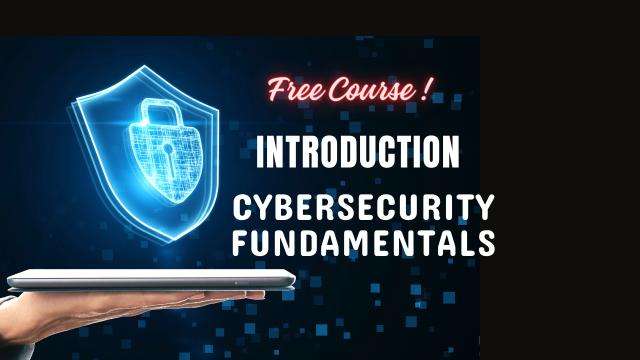

The News Community


In this section, we’ll provide a brief overview of the importance of cybersecurity and introduce the “Introduction to Cybersecurity Fundamentals” course.
Explore why cybersecurity education is crucial in today’s digital age and how it impacts individuals and organizations.
A detailed breakdown of the course content, highlighting key modules and learning objectives.
Delve into the basics of cyber threats, including malware, phishing, and other common attack vectors.
Discuss fundamental security concepts such as encryption, authentication, and access control covered in the course.
Highlight the qualifications and expertise of the course instructor, emphasizing their real-world experience in cybersecurity.
Explore the user interface, interactive elements, and overall learning experience offered by the course platform.
Discuss the effectiveness of hands-on labs and simulations in reinforcing cybersecurity concepts.
Evaluate the quality and comprehensiveness of course materials, including textbooks, videos, and supplementary resources.
Examine how the course integrates real-world case studies and practical examples to enhance learning.
Highlight reviews and testimonials from students who have completed the course, providing a real-world perspective on its effectiveness.
Share success stories of individuals who have applied the course knowledge in their professional roles.
Discuss the significance of the course certification and its impact on career prospects in the cybersecurity field.
Acknowledge any potential challenges or limitations of the course, maintaining transparency for prospective students.
Provide solutions or recommendations for overcoming challenges mentioned earlier.
Compare the course with other similar offerings in the market, highlighting its unique features.
Evaluate the cost of the course in relation to the value it provides, considering both content quality and career benefits.
Discuss the course’s relevance in the rapidly evolving field of cybersecurity and any plans for future updates.
Summarize the key advantages and disadvantages of the course for quick reference.
Provide a concluding statement summarizing the overall assessment of the course and its suitability for different audiences.